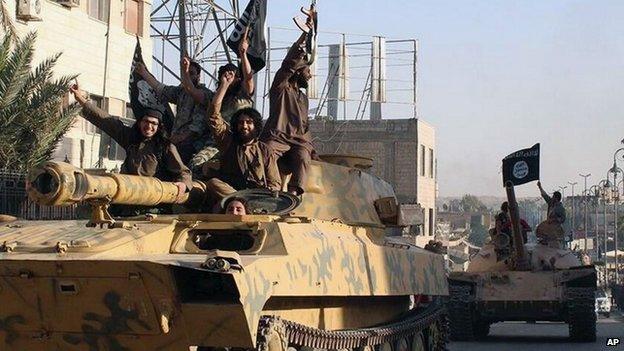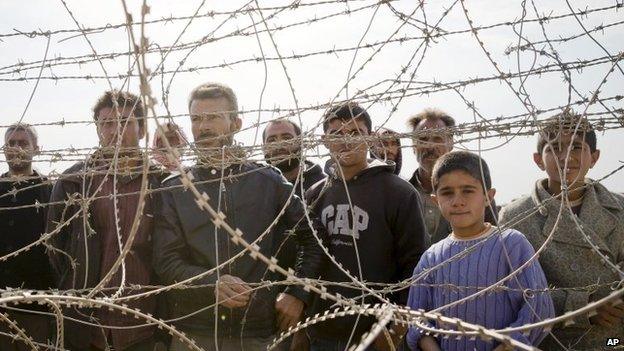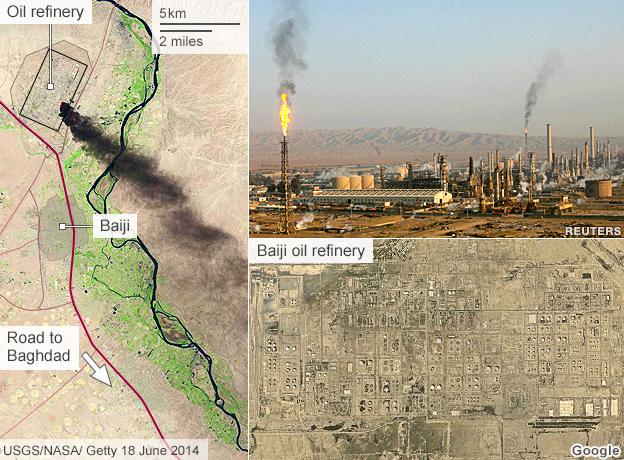UN says Islamic State imposing rule of terror in Syria
- Published

Islamic State has a reputation for brutality in the territories it controls
The militant group Islamic State is committing war crimes and imposing a "rule of terror" in areas it controls in Syria, a UN report says.
The report, based on more than 300 witness interviews, said IS was using "extreme violence" against civilians.
Men caught smoking have had their fingers amputated, while a female dentist who treated men was publicly beheaded, the report said.
The group has seized large parts of Syria and Iraq since June.
'Forced pregnancies'
The report, external by UN human rights investigators, entitled Rule of Terror: Living under Isis in Syria, is the first in which the UN closely examines tactics by IS, which is also known as Isis or Isil.
In addition to interviews with men, women and children who had fled or are living in IS-held areas in Syria, the report also examined photographs and videos distributed by the group.
Public executions by the group were common, with bodies frequently left on public display "as a warning to local residents", the report said.
It added that the international community had underestimated the threat the group posed to regional stability, and that the failure to find a political solution to the Syrian crisis had "left a dangerous vacuum" that was filled by the group.
The report also described:
IS fighters blocking supplies of food aid and medicines from reaching local populations
The raping, stoning and torturing of civilians
The sexual enslavement of minority Yazidi women, including forcing them to bear the children of IS fighters
The use of child soldiers, and gathering children for screenings of videos showing mass executions
IS militants basing themselves in civilian houses and farms in response to US-led air strikes
The report was written by the UN's Independent International Commission of Inquiry on the Syrian Arab Republic.
The commission, external was established in August 2011 by the UN's Human Rights Council with a mandate to investigate all alleged human rights violations in Syria.
The report said that other parties in the Syrian conflict, including the Syrian government, were also responsible for human rights violations against civilians and captured fighters.

Millions have been displaced by the Syrian conflict
However, it added that those groups were more likely to hide their activity, while IS "actively promotes abuses and crimes" to try to enforce its authority.
Islamic State's brutal tactics have sparked fear and outrage across the world, including from Muslim groups.
In February, al-Qaeda disavowed IS for its actions in Syria.
A US-led military campaign has been attacking IS targets since August.
In Washington on Thursday, US Defence Secretary Chuck Hagel said that "steady and sustainable progress" had been made against IS.
The US-led air strikes had helped in "degrading and destroying Isil's [IS] war fighting capacity and in denying safe haven to its fighters", he said.
Meanwhile, on Friday, Iraqi officials said their forces had driven out IS fighters from the oil refinery town of Baiji, 200km (130 miles) north of Baghdad.
Around 200,000 people live in the town, and the refinery accounts for around a quarter of Iraq's oil production.
The town lies on the main road to Iraq's second-largest city, Mosul, which is under the control of IS.
